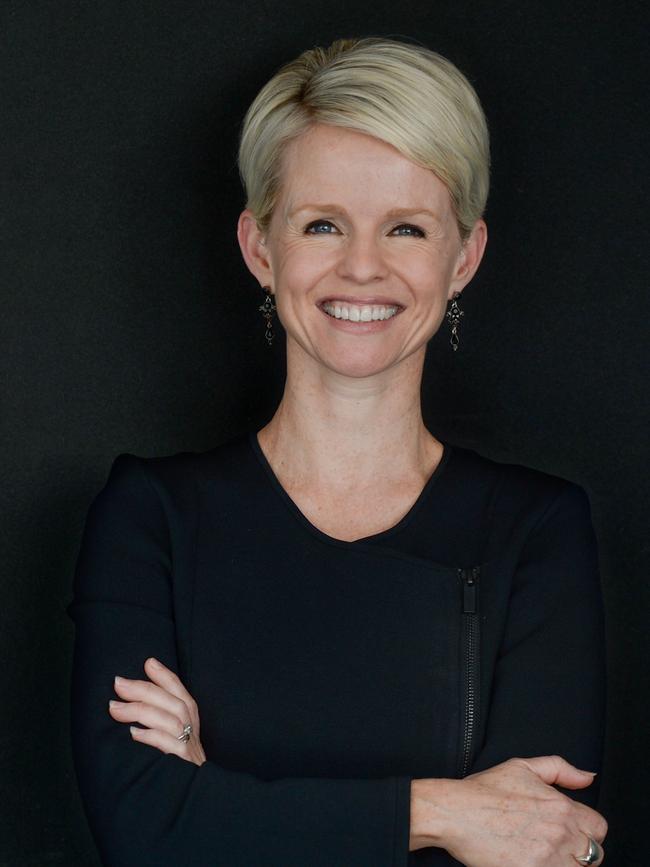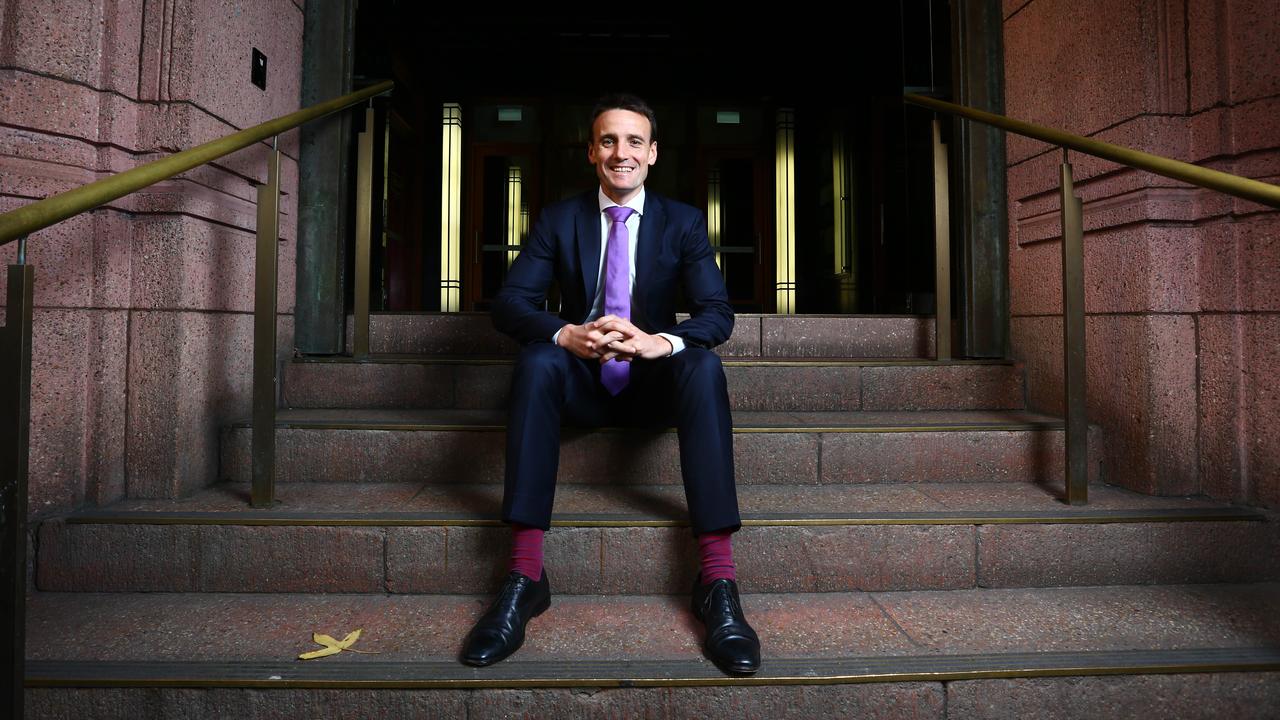Super scare: As markets tumble, is your super setting OK?
Sharemarket turmoil and a grim outlook for investment returns is prompting many to question what effect all this will have on their superannuation.

Business
Don't miss out on the headlines from Business. Followed categories will be added to My News.
A sinking sharemarket coupled with an increasingly grim outlook for investment returns is forcing investors to ask the big question: ‘‘Is my super OK?’’
Most super funds made a loss for the month of February – and the more that super investments were focused on ‘‘growth’’, the larger the losses they recorded.
That’s entirely logical: the more risk you take, the more extreme your returns will be – upwards or downwards.
The only thing is that most people have not had to worry about investment reversals for many years – ‘‘growth’’ has become the standard choice for everyday investors across super. Genuinely ‘‘balanced’’ funds are regarded as boring, conservative and truly out of fashion.
In 2025 it looks like the tide is finally turning and double-digit super returns look very unlikely. The Trump-led tariff wars are seriously disturbing the markets. Both the benchmark US S&P 500 and our own ASX 200 have both entered correction territory – down about 10 per cent from their peaks.
In contrast, gold prices – the ultimate indicator of fear around the investment world – are powering ahead.
Gold is marching relentlessly towards $US3000 and is up 36 per cent in the past 12 months. Despite the diversification of big super funds, sharemarkets are the swing factor and major investment houses are now rewriting their forecasts for the year ahead.
It may be difficult not to be rattled when we see market veterans such as Marcus Padley midweek announcing: ‘‘We sold our only holding in the strategy portfolio today, taking us to 100 per cent cash.’’
But professional investors are playing a very different game than long-term super savers.
What’s more, it’s deceptively easy to sell, or switch to cash. The hard part is decide when to go back into the market.
Anyone who switched their super savings into conservative settings during the Covid crash would know about that when the markets rebounded in the blink of an eye.
Kirby Rappell of SuperRatings put it succinctly, suggesting the ideal disposition right now it to be ‘’alert but not alarmed’’.
But the message is clear – it’s time to review your super settings.
Don’t react … act
It’s a time like this when the gaping hole in Big Super becomes most obvious – where to turn for financial advice? It’s not like the call centre operator at your fund is going to be able to help you to make decisions.
As the government and the super sector wrangle over the nature of advice that big funds might offer the millions who depend on them, independent advisers cost more than $5000 a year.
In other words, unless you are quite rich, you are on your own here when it comes to making sure your super is set properly. What to do?
Almost every adviser will offer the same guiding principle at times of market turmoil: Don’t react … act.

Hugh Robertson, of Centaur Financial Services – a veteran of the top Australian’s Top 150 adviser list – puts it this way: “First of all, don’t panic, but look at where your money is placed – think of it as a bucket strategy. Look at the situation closely. You might be in a growth fund – is it time for some of that money to be in balanced? You might not have to do anything, but you should at least consider switching the balance of your allocations if you are concerned.”
Robertson reiterates the broader rules that the older you are the less risk you should take: “Obviously, if you are under 40 don’t worry about this year’s market or next year’s returns – you’ve got 20 years to make back any money lost this year.”
Nabtrade head of investor behaviour Gemma Dale says: ‘‘For some people, you have to go back to basics. Find out what your choices have been so far – refresh your understanding of your position – then once you understand that, review the position and whether it is appropriate for you at your age.’
“Let’s say you have three to five years left before you hit retirement age – then it really is important to review your settings because you don’t really have loads of time left to accumulate.’’
She says the outstanding issue for pre-retirees is what’s called “sequential risk’’ – the risk that markets crash and your savings at the time to retirement (which may have hit a maximum) are almost immediately reduced by a violent market downturn.
Older investors will not forget the long slow choke of the GFC when sharemarkets fell 50 per cent between 2007 and 2009.
Dale recounts a story that could send a chill through any pre-retiree who has not kept a close eye on their super: “I worked with a finance executive prior to the GFC. He retired with $1m in savings, but his timing was most unfortunate. The crash hit him in the very early phase of retirement … he was back at work within a year!”
Of course not everyone is faced with the rigid choices of Big Super.
It is much easier for retirees with self-managed super funds to react to changed market conditions because they have a much wider range of choices.
SMSF investors in the accumulation phase can let their ongoing contributions accumulate in cash during rocky periods on the market – they can also purge their portfolios of more speculative or lower quality investments. Or as Rudi Filapek-Vandyck put it in a recent edition of the money puzzle: ‘‘They can take out the trash.’’
Making your move

Centaur’s Robertson says: “Everyone will have a different story but there are issues that apply to every investor in super. You start to review where you keep your money. If it was all in ‘‘growth’’ until now, then do not rule out putting some of your savings into a balanced setting. It does not have to be all or nothing – you just have a create an arrangement that suits you and you apply that to our super.”
Advisers suggest that once you have reviewed your super, you might find there is nothing to do – that’s fine.
But some will realise its time to act. In a few years’ time the amount of money that you can squeeze out of that super fund is going to dictate the type of car you drive, the type of holiday you take … it will dictate how much you have to finance old age medical costs not covered by the government.
Keep in mind the median retirement balance for men is $211,000 and for women is $158,000, but medians can disguise how some investors have very little in super.
As Robertson points out: ‘If you have a relatively small amount in super – let’s say $40,000, then the crucial issue is to preserve that money so that you have something beyond your aged pension payments for when you need big ticket times – in that situation you would have it in a conservative setting.”
James Kirby hosts the twice-weekly Money Puzzle podcast.
More Coverage
Originally published as Super scare: As markets tumble, is your super setting OK?





